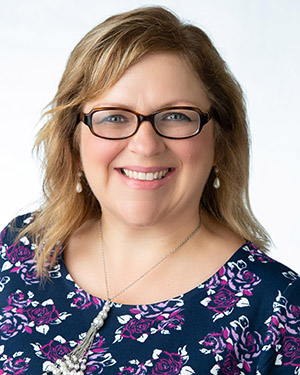This school year has presented more challenges than ever before. As leaders, we are charged with keeping it all together at the schoolhouse—while at the same time, as individuals, we are in need of support and self-care due to the uncertainty and unrest that surround us. How, with all that we have going on this school year, do we have time to think about our core values? I sincerely believe that we must make time to reflect on and challenge our core values to understand how they shape our school culture and student success.
If members of our school communities would be asked to describe us as leaders, to express what they believe are our core values, what would they say? Do we communicate our values? How do we challenge ourselves and others to keep our core values in check? These questions, along with countless others, resurface over and over for me as I strive to grow as an educational leader.
Our Students, Our Peers, Ourselves
As we work to improve schools and education as a whole, we give it all we’ve got. We look for ways to increase funding, we purchase new curricula, we plan and implement professional development, we try new strategies, we increase rigor, we track student growth and make adjustments to meet student needs, we hold ourselves accountable through high-stakes assessments; the list goes on and on. However, I propose that there is much deeper work for us to do if we truly seek continued, sustainable growth for our students. We must devote time to identify, evaluate, challenge, and communicate our core values, especially as they pertain to beliefs about our students, our peers, and ourselves.

When examining our beliefs, we have to be honest with ourselves and others. We should start with easier questions that tend to unify us as educators, like why we chose to be educators and how our work changes the world. Then we must move onto more difficult questions that sometimes require us to face hard truths, see things from others’ perspectives, and change our mindsets.
We must ask ourselves what we believe about the potential of our students, if we truly value each and every student regardless of perceived differences and/or perceived challenges. Are we prejudging students’ capabilities or labeling them based on unfair criteria? When it comes to our students, do we have the mentality that “we are just doing the best we can with who we’ve got”?
We must also ask ourselves if we truly value each and every educator in the building, in what each adult on campus contributes to the success of our students. Do we really believe in the power of the collective effort? Do we show each adult on campus, regardless of the role they serve, that we value their work?
Finally, we must reflect on our own self-worth and self-efficacy to determine if we truly believe we are up to the task of positively affecting student growth and success, if we truly believe that what we do makes a difference in this world. We must ask ourselves if we are willing to put in the work to continuously seek opportunities to grow and improve.
The Bottom Line
I think most districts and school leaders shy away from work around core values for many reasons. It is not just that we want to avoid hard work and difficult discussions, but with all the constant pressures to improve academically, many of us are on the lookout for the next quick fix. I mean, we are shaping children’s lives; there is not much time to spare, I get it! But until our core values include a sincere belief in the value of all students, of one another as educators, and of ourselves—until this is deeply rooted in our hearts and in the work we do, all the other so-called solutions to our problems will not work. Sure, new and improved programs and policies can help us find short-term wins, but we cannot sustain academic growth and student success over time without digging deep. We cannot change the world, one student at a time, if we do not have the basic belief in our abilities to do so.
Next Steps
As principals, we must go first by examining our own core values. We must do the work in order to be able to lead others in doing the same. For years, I have reflected on my own core values and believed that my daily words and actions were enough to communicate my beliefs and what I value. However, 2020 has prompted me to ask myself if this is enough.
Since then, one action step I have taken to communicate my belief in the value of each student and staff member, regardless of perceived differences or challenges, was to start a faculty-led Diversity, Inclusion, and Equity task force whose self-created mission is to “actively seek to understand ways we can all grow together to develop a more inclusive and equitable environment that validates the dignity of every Griffin and the rich complexities in a diverse, ever-changing world.” Although having such a task force had been on my heart for some time, I placed the idea on the back burner several years in a row because I questioned the timing of starting such an important initiative and because I felt pulled in so many other directions—and ultimately allowed other focus areas to trump what I believed was critical to our school culture and student success.
It is time we devote as much energy into who we are, what we believe, and how we value others as we spend in researching other solutions to improve. Of course, we cannot stop looking for ways to increase funding or stop looking for better curricula; we cannot stop offering professional development or trying new strategies, but the only way to ensure these best practices are authentic, effective, and long-lasting is if we dig deep and do the hard work to keep our core values in check.


4 Comments
Well said! Thank you for being such an incredible and understanding principal!
I can tell you that being a part of the Diversity, Equity, and Inclusion group has led to a deeper understanding of my colleagues and students. I am honored to be a part of this group and learn with the best.
Love the article and could not agree more! We have run professional development where the entire faculty and administration at my high school has shared Personal Professional Mission Statements….Our Student Equity Team has hit its stride after four years and we started a Parent Equity Team. Leaders need to develop their own skills, that of their teachers as leaders, and make that connection to Students and Parents as well in leading change.
Excellent ! As a new Griffin, I can say I feel valued and am learning so much from my co-Griffins. We Griffins don’t just talk about it, we live it. I absolutely love the culture at our school and it is an “infectious dream-come-true.” By infectious I mean, one of my “needs improvements” is being able to see past my stress with coping with “these times” and carry on with the teacher I am. Teaching is not my job–it’s who I am. The infectious environment at our school keeps me focused on pushing students up to and past what they believe their potentials are. I truly believe in the “power of a good teacher.” Time and time again–I find a kid thinks he doesn’t have what it takes, and I tell him, “no–you have more potential than it takes Less effort than your most is not acceptable.” Once the kids are onboard with me, things begin to change. That is the “power of a good teacher.” They begin to see themselves the way I see them: not as a particular part of society–but rather, just a great kid that can and will succeed in our ever changing world. I absolutely love being a Griffin!
Beautifully said!